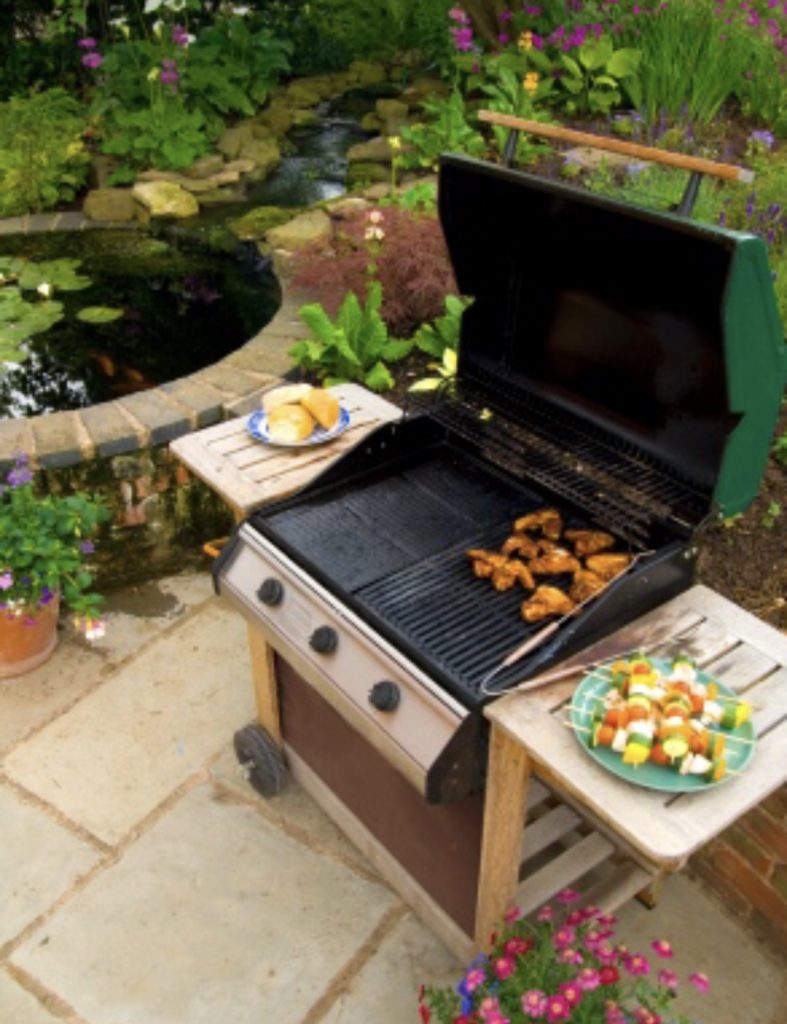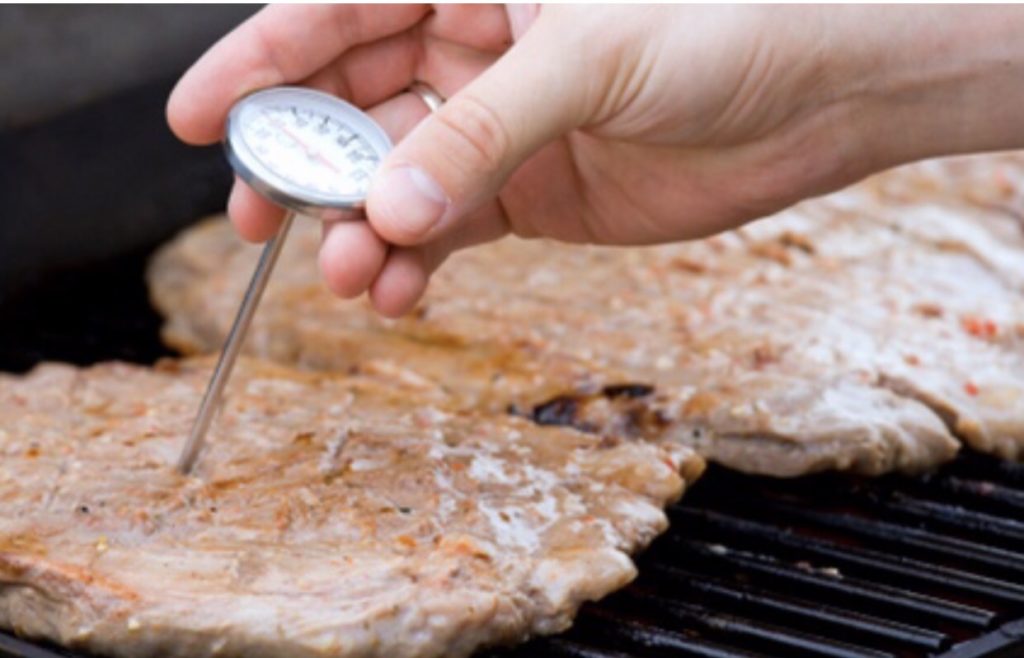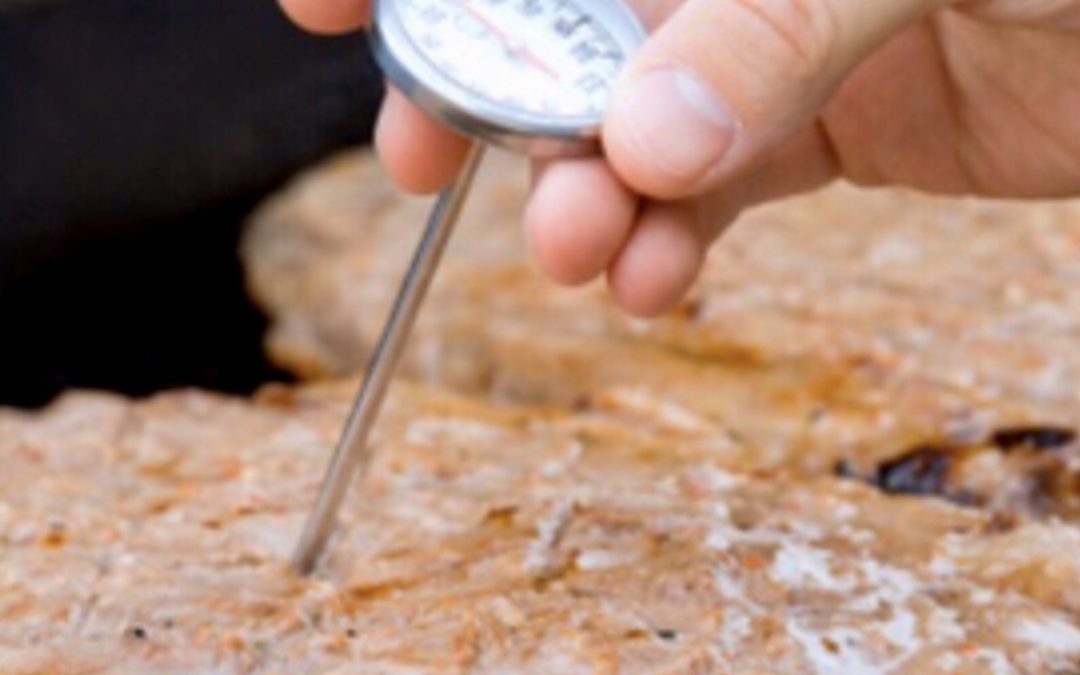Proper food handling includes not only how you cook the food, but also the equipment and utensils you use to make it. From cleaning your grill and grilling utensils, to using a clean dish towel to wipe your hands, it’s important to practice all safe food handling steps to protect your picnic guests from food-borne illness.

Are you ready to get your grill on? I use my grill all year long, even in the snow! But, not everyone is like me. If your grill has been packed away since last year, it might need a good cleaning before you use it.
Memorial Day is just around the corner and thousands of people will be entertaining guests and firing up the grill. The last thing you want to do is serve your guests contaminated food. That’s why it’s important to keep food safety at the top of your mind, and do everything you can to maintain a safe cooking environment.
Proper Food Handling When Grilling
Many foods cooked on a grill can cause food-borne illness if not properly prepared. I shared a lot about this in my post about the importance of using a food thermometer. But, it’s not only under-cooked food that can make you sick. You have to be cautious with everything from the grill to the dishtowel to the plate you carry your raw foods on. To keep you, your friends, and the entire family safe, be sure to maintan a safe and sanitary environment when preparing, serving and handling foods that you grill. Here are some tips to remember as you celebrate the season.
Keep all Equipment Safe
If you haven’t cleaned your grill since last year, you should do so before you use it. Scrub the grill, all outdoor utensils, coolers and other containers with hot soapy water before cooking your favorite summertime foods. Your cooking equipment also includes your apron & dishtowel. These items can easily harbor bacteria if you are using them to clean up spills, wipe raw juices or wipe dirty hands. Consider paper towels for drying hands and hand wipes for cleaning spills.
Cross-contamination is one of the most common concerns during outdoor grilling season. It’s important to keep raw foods and ready-to-eat foods separate. That means the plate that carried your raw burgers to the grill, should be cleaned before you put the cooked burgers on it. An easier way is to use a new plate to carry cooked food. Cross-contamination can also occur from utensils. If you used a marinade brush on raw meats before grilling, make sure you clean it before using it again. Be sure to have extra plates, utensils and paper towels on hand, so that you can keep your raw and cooked foods separate. You should also make sure there is extra soap and water to keep your hands clean.

Prepare Food Properly
Food handling is more than just cooking food, it also includes any food preparation you do for your picnic or party. Make sure to wash hands before, during and after all food preparation. You should never partially pre-cook meat or poultry before transporting. If the item must be precooked, cook it until it is done, cool it, pack it on ice in the cooler, then re-heat as necessary.
Be sure to use a meat thermometer to check that food has been cooked to a proper internal temperature. Thinking that a food looks done is not enough. You should be sure it is cooked thoroughly before eating or serving to guests. Also, never reuse marinates that have come into contact with raw meats. You can read more on the proper temperature of foods at food safety.gov.
Keep Foods Safe After Cooking
Maintaining a safe temperature of your food is important before, during and after preparation. The higher the temperature is outdoors, the less time the food can remain out of the refrigerator. Bacteria grows rapidly when the temperature of food is between 40 – 140 degrees F. The typical recommendation is that cooked food should not sit at room temperature any longer than 2 hours. That recommendation doesn’t apply when the food is sitting in an environment that is greater than 90 degrees F. Rather, it gets cut in half to one hour. The best way to maintain foods at a safe temperature is to cook, serve and eat immediately, and avoid letting food sit out. Cold foods should be stored on ice to maintain their temperature below 40 degrees F and hot foods can be kept over 140 degress F by using a food warmer.
Apply these tips and you’ll be prepared for a healthy, happy and safe grilling season.


 Hi, I’m Heather – a registered dietitian, busy mom, consultant, adventure junkie and travel addict who has mastered living healthy on the go. My blog is where I share simple recipes and healthy living tips to help and inspire others to live their best life.
Hi, I’m Heather – a registered dietitian, busy mom, consultant, adventure junkie and travel addict who has mastered living healthy on the go. My blog is where I share simple recipes and healthy living tips to help and inspire others to live their best life.